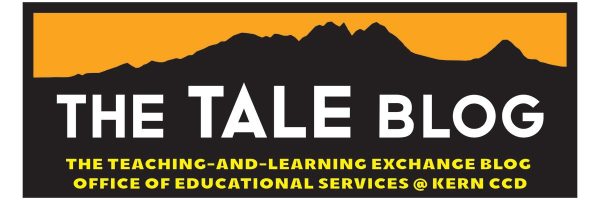On Friday, November 15th many faculty, staff and administrators attended a workshop on instructional technology issues and accessibility for students with disabilities presented by Gaeir Dietrich, the Director of the CCCCO’s High Tech Center Training Unit. To complement the training, the DSPS faculty and staff also put together a terrific display of technology typically used by students with a variety of disabilities.
Gaeir Dietrich taught us many interesting things—most importantly that “campus accessibility is a campus-wide responsibility” and that “digital does not necessarily mean accessible.” “It’s a matter of equal rights, campus diversity, and better pedagogy by acknowledging learning differences that benefits all students.”
While other laws do apply, Gaeir primarily focused on two sections of the 1973 Rehabilitation Act (as amended): Section 504 which relates to accommodations for people with disabilities, and Section 508 which refers to access to Electronic and Information Technology. Because we accept federal funding at BC these laws apply to us. Section 508 is a campus-wide responsibility; while section 504 is primarily a DSPS responsibility. Section 504 begins where section 508 ends. In short, the campus is responsible for purchasing and implementing accessible technology (including hardware, software, websites, videos, and classroom management systems), and if that still doesn’t meet the needs of a particular student, then DSPS will accommodate for that person. “But some programs cannot be accommodated, such as ALEKS, and therefore cannot be required of all students to use,” Gaeir said.
When it comes to videos, we should always first check to see if they are captioned. According to Gaeir videos need to be captioned before the first showing in class regardless of whether or not that class contains someone who needs it. “Research shows that many more students can benefit from captions than just students who are deaf or hard of hearing… English language learners, and students with attention or learning disabilities can also benefit from captions.” If the video you want is not captioned, then the department must get it captioned. The cost for getting it transcribed and captioned costs about $3.50 per minute, so we are better off finding materials already captioned.
“Academic freedom is not the issue” said Gaeir, “that’s what goes into the container. But the container must be accessible. What you put on the page is your business… so is making sure that page is an accessible document.” To make accessible PDFs is not as daunting as one might think. Gaeir recommends starting out in MS Word and using the styles settings for headers, body text, etc. Also, add ‘alt tags’ to photos so someone who can’t see them will know the content. Then, save the page as a PDF. It can really be that simple!
Accessibility needs to be part of our planning process. If we all do our part, then not only will it cost less to accommodate individual students but also we create greater access for all BC students, faculty and staff. To contact DSPS call 661-395-4334 or email director Terri Goldstein.
You can also view this informative presentation online. Tom Moran, Bakersfield College’s faculty-photographer-extraordinaire, also has a gallery of images for the day online!






